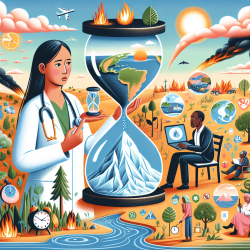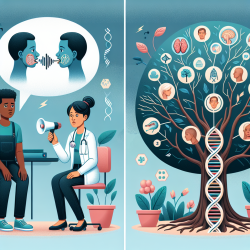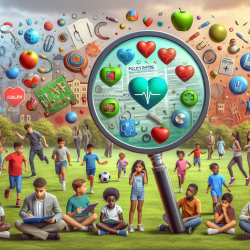Introduction
In the face of global climate change, understanding its impact on human health is crucial, especially for practitioners in the health sciences. A recent study titled "Knowledge and perceptions about the health impact of climate change among health sciences students in Ethiopia: a cross-sectional study" provides valuable insights that can help practitioners enhance their skills and knowledge base. This blog explores the study's findings and suggests ways practitioners can implement these insights to improve their practice.
Key Findings from the Study
The study conducted at Haramaya University in Ethiopia revealed that over three-quarters of health sciences students were aware of the health consequences of climate change. However, a significant portion of these students felt that their knowledge was insufficient to fully understand the public health impacts of climate change. The study also highlighted that electronic mass media was the primary source of information for these students.
Importantly, students who were knowledgeable about climate change were more likely to perceive it as a serious health threat and recognized their departments' concern about climate change. This correlation underscores the importance of awareness and education in shaping perceptions and preparedness.
Implications for Practitioners
For practitioners, the study's findings highlight the need for comprehensive education and training on the health impacts of climate change. Here are some actionable steps practitioners can take:
- Engage in Continuous Learning: Attend webinars, conferences, and workshops focused on climate change and health. This will help keep your knowledge up-to-date and relevant.
- Incorporate Climate Change into Curriculum: If you are involved in educational planning, advocate for the inclusion of climate change and health impacts in the curriculum. This ensures that future health professionals are well-prepared to address these challenges.
- Utilize Diverse Information Sources: Encourage the use of varied sources of information, including scientific publications, online courses, and expert talks, to gain a well-rounded understanding of the topic.
- Foster Interdisciplinary Collaboration: Work with professionals from other fields such as environmental science and policy-making to develop comprehensive strategies for addressing health impacts of climate change.
Encouraging Further Research
The study indicates a gap in the knowledge and preparedness of health sciences students regarding climate change. Practitioners can play a crucial role in bridging this gap by engaging in and promoting further research. Consider collaborating with academic institutions to conduct studies that explore the specific impacts of climate change on health in different regions. Such research can inform policy and educational reforms that are critical for mitigating the health impacts of climate change.
Conclusion
Understanding the health impacts of climate change is essential for practitioners in the health sciences. By implementing the insights from the Ethiopian study, practitioners can enhance their skills and contribute to a more informed and prepared health sector. For those interested in delving deeper into the research, the original study provides a comprehensive analysis of the current state of knowledge and perceptions among health sciences students in Ethiopia.
To read the original research paper, please follow this link: Knowledge and perceptions about the health impact of climate change among health sciences students in Ethiopia: a cross-sectional study.










